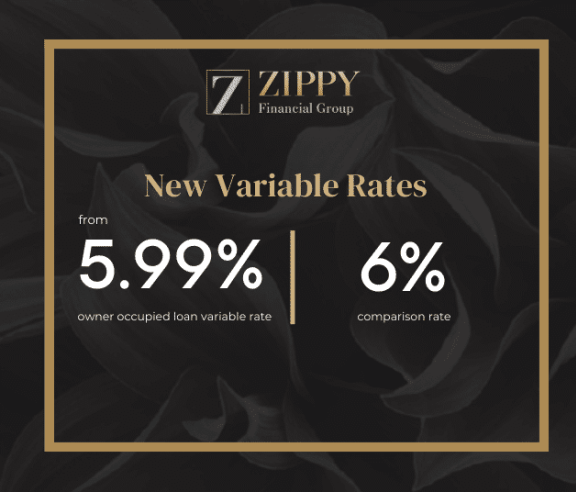Is Now the Right Time to Buy Property?
In 2021, many pondered whether it was the ideal time to invest in real estate. Fast forward to the present, and the question remains as pertinent as ever. With fluctuating market conditions and evolving economic landscapes, understanding whether now is the right time to buy property requires a fresh perspective. Let’s dive into the current state of the real estate market and unravel the complexities of buying property today.
Understanding Market Seasonality
The real estate market is influenced significantly by the time of year. Each season brings its unique set of advantages and challenges for those looking to buy properties. In spring, the market often sees a surge in listings, providing more options but also more competition. Summer can offer a slower pace, yet buyers might face higher prices. Autumn might bring motivated sellers, leading to potential bargains, while winter often sees a dip in activity, offering opportunities for those willing to brave the colder months. Considering these seasonal trends is crucial in strategizing your property purchase.
Current Market Conditions
Today’s real estate landscape is shaped by several critical factors. Mortgage rates, which have seen fluctuations, play a significant role in determining the affordability of buying property. Additionally, home prices have been on a rollercoaster, influenced by both the pandemic’s aftermath and broader economic factors. This volatility necessitates a careful evaluation of when and where to invest in property.
Personal Readiness and Financial Considerations
Buying property is not just a market-driven decision; it’s also deeply personal. Assessing your financial health is key. This includes understanding your credit score, gauging your down payment capacity, and evaluating your long-term financial stability. Remember, purchasing a property is not just about the here and now; it’s about planning for your future.
Evaluating Your Financial Health
- Credit Score Awareness: Begin by assessing your credit score. Your credit score plays a pivotal role in determining the interest rates you qualify for on a mortgage. Obtain your credit report, review it for accuracy, and take proactive steps to improve your score if needed. A higher credit score can result in more favorable loan terms.
- Debt-to-Income Ratio Analysis: Conduct a thorough analysis of your debt-to-income ratio, a crucial metric that lenders utilize to assess your capacity to handle mortgage payments relative to your income. Strive for a ratio that meets lender requirements, showcasing a balanced relationship between income and existing debts. Seeking guidance from a mortgage broker can provide valuable insights into optimizing this ratio.
- Emergency Fund Considerations: Consider the status of your emergency fund. A well-funded emergency fund provides a financial safety net, offering peace of mind in unexpected situations. Evaluate the sufficiency of your emergency fund in covering three to six months’ worth of living expenses.
Assessing Long-Term Financial Stability
- Employment and Income Evaluation: Evaluate your employment stability and income trajectory. Lenders typically look for a consistent employment history and reliable income. Anticipate potential changes in your employment situation and consider how these changes may impact your ability to manage mortgage payments.
- Future Financial Goals Alignment: Align property ownership with your future financial goals. Consider how buying a property fits into your broader financial plan, including goals such as saving for education, retirement, or other major life events. Ensure that property ownership complements your long-term financial objectives.
- Contingency Planning for Market Fluctuations: Develop contingency plans for potential market fluctuations. Real estate markets can experience changes, and property values may fluctuate. Understanding how these fluctuations may impact your financial stability enables you to proactively plan for different scenarios.
Real estate is inherently local. What applies nationally might not hold true in your desired area. For instance, urban markets might behave differently from rural ones. It’s essential to research local market trends, understand property values in your area of interest, and consult local experts. This localized approach ensures a more informed and strategic property-buying decision.
Looking Ahead – To Buy or To Wait?
So, is now the right time to buy property? The answer depends on a mix of market conditions, personal readiness, and future predictions. If the market in your area is favorable and your finances are in order, it could be a great time to invest. However, if uncertainty looms or if personal finances need bolstering, waiting might be wise.
Deciding whether to buy property now or wait is a multifaceted decision. It requires balancing market knowledge with personal financial readiness and future aspirations. As the market continues to evolve, staying informed and seeking professional advice can help navigate these decisions. Whether you’re buying property for the first time or expanding your portfolio, the key is to make a well-informed, strategic decision that aligns with your long-term goals.
Frequently Asked Questions
What factors should I consider to determine if it’s the right time to buy property?
Consider market conditions like mortgage rates and property prices, your personal financial readiness, including credit score and savings, and specific trends in the region you’re interested in.
How do seasonal trends affect property buying decisions?
Seasonal trends can influence the number of listings, prices, and competition. For example, spring often has more listings but also more buyers, while winter might offer fewer options but less competition.
Are current mortgage rates favorable for buying property?
Mortgage rates fluctuate and can significantly impact the cost of buying a home. It’s important to research current rates and trends to understand how they might affect your purchase.
Is it better to buy property in urban or rural areas?
The choice between urban and rural areas depends on your lifestyle preferences, budget, and investment goals. Urban areas might offer more amenities but at higher prices, while rural areas might be more affordable but with fewer amenities.
What long-term factors should I consider when buying property?
Consider long-term market trends, potential for property value appreciation, and your future life plans, such as family expansion or job mobility.
Is now a good time for first-time buyers to enter the market?
First-time buyers should evaluate their financial readiness, research market conditions, and consider available government incentives. If these factors align, it could be a favorable time to enter the market.
Zippy Financial is an award-winning mortgage brokerage specialising in home loans, property investment, commercial lending, and vehicle & asset finance. Whether you are looking to buy your first home, refinance or build your property investment portfolio, the team at Zippy Financial can help find and secure the right loan for you and your business.
Louisa Sanghera is an award-winning mortgage broker and Director at Zippy Financial. Louisa founded Zippy Financial with the goal of helping clients grow their wealth through smart property and business financing. Louisa utilises her expert financial knowledge, vision for exceptional customer service and passion for property to help her clients achieve their lifestyle and financial goals. Louisa is an experienced speaker, financial commentator, mortgage broker industry representative and small business advocate.
Louisa Sanghera is a Credit Representative (437236) of Mortgage Specialists Pty Ltd (Australian Credit Licence No. 387025).
Disclaimer: This article contains information that is general in nature. It does not take into account the objectives, financial situation or needs of any particular person. You need to consider your financial situation and needs before making any decisions based on this information. This article is not to be used in place of professional advice, whether business, health or financial.
Buying Property Could Be Cheaper Than Renting
Buying a Property with Friends and Family
First Time Buyers: Your Time is Now
.
Mortgage Broker in Wahroonga
Mortgage Broker in Sydney
Mortgage Broker in
Roseville
Mortgage Broker in
Northern Beaches
Mortgage Broker in
Inner West of Sydney
Mortgage Broker in
Castlecrag
Mortgage Broker in
Lane Cove
Mortgage Broker in
Upper North Shore
Buying a Property with Friends and Family
In an era of escalating property prices, the idea of purchasing property with friends and family is gaining popularity. This innovative approach to homeownership provides a solution to the affordability crisis, enabling individuals to combine resources for a shared investment in property.
The Rise of Collective Property Purchases
The trend of co-ownership is gaining momentum, driven by the need for more affordable housing solutions. With the cost of buying a property alone out of reach for many, joining forces with friends or family members presents a viable alternative. This approach not only eases the financial burden but also opens doors to better properties that might otherwise be unattainable.
Advantages of Co-Ownership
Buying a property collectively comes with several benefits. Shared financial responsibility means less strain on individual budgets, allowing for a more significant investment. It also fosters a sense of community and shared purpose, as co-owners embark on the homeownership journey together. Additionally, exploring options for asset finance can enhance the financial flexibility of the collective investment.
Understanding the Challenges
Despite its advantages, co-ownership is not without its challenges. Legal complexities, potential conflicts, and financial risks are inherent in any joint investment. It’s crucial to acknowledge these challenges upfront and prepare for them adequately.
Legal and Financial Considerations
When it comes to buying a property with others, understanding the legal implications is vital. Options like joint tenancy or tenants in common offer different rights and responsibilities. A clear, written agreement outlining each party’s contribution, responsibilities, and exit strategies is essential to avoid future disputes.
Preparing for Co-Ownership
Before committing to buy a property with friends or family, it’s important to consider several factors. Assessing the compatibility of financial goals, long-term plans, and conflict resolution strategies is crucial. Each party should be clear about their expectations and commitments.
Compatibility Assessment in Financial Goals
- Open Financial Discussions: Initiate open and transparent discussions about financial goals. Understanding each co-owner’s financial aspirations, whether it be long-term wealth-building, property appreciation, or short-term investment returns, forms the foundation for a harmonious co-ownership arrangement.
- Budget Alignment: Assess the alignment of individual budgets and financial capabilities. Co-owners should have a shared understanding of how costs will be distributed, covering aspects such as mortgage payments, property maintenance, and unexpected expenses. This alignment prevents financial strains and promotes a collaborative approach to financial responsibilities.
- Risk Tolerance Evaluation: Evaluate the risk tolerance of each co-owner. Divergent risk preferences may lead to disagreements on property-related decisions. Establishing a collective risk tolerance framework ensures that major decisions, such as property improvements or leveraging equity, are made with consensus.
Long-Term Planning and Vision Alignment
- Shared Long-Term Goals: Discuss and align on long-term plans for the property. Co-owners should share a vision for the future use of the property, whether it’s a long-term residence, a vacation home, or an investment property. This alignment minimizes potential conflicts arising from disparate expectations.
- Exit Strategies: Establish clear exit strategies in case one co-owner decides to sell their share or circumstances change. This includes predefined processes for selling the property, right of first refusal agreements, and mechanisms for determining the property’s value in the event of a buyout.
- Contingency Planning: Anticipate potential life changes, such as job relocations, family expansions, or shifts in financial circumstances. Develop contingency plans to address these changes and ensure that the co-ownership arrangement remains adaptable to the evolving needs and goals of each party.
Conflict Resolution Strategies
- Formal Agreements: Consider creating formal co-ownership agreements that outline the rights, responsibilities, and decision-making processes of each party. These agreements can address potential areas of conflict, such as property usage, maintenance responsibilities, and dispute resolution mechanisms.
- Communication Protocols: Establish effective communication protocols for addressing disagreements. Regular check-ins and scheduled meetings provide a platform for open discussions, allowing co-owners to express concerns, share perspectives, and collectively find solutions to potential conflicts.
- Professional Mediation Options: Include provisions for professional mediation in the co-ownership agreement. In the event of unresolved conflicts, having a neutral third party mediate can facilitate constructive discussions and help co-owners reach mutually agreeable resolutions.
Expert Guidance for a Smooth Process
Navigating the complexities of co-ownership requires expert advice. Consulting with financial advisors, mortgage brokers, and real estate professionals can provide valuable insights and help tailor a mortgage solution that suits everyone’s needs.
Buying a property with friends and family can be a rewarding experience, offering financial and emotional support. However, it’s important to approach this arrangement with careful planning and clear communication. By understanding the benefits and challenges, and seeking expert advice, co-owners can embark on a successful property ownership journey together.
Frequently Asked Questions
What are the benefits of buying a property with friends and family?
Shared financial responsibility, access to better properties, and fostering a sense of community.
What are the main challenges of co-owning a property?
Legal complexities, potential conflicts, and financial risks associated with joint investments.
How can we legally structure our co-ownership?
Options include joint tenancy or tenants in common, each with different rights and responsibilities.
Is it necessary to have a written agreement when buying property collectively?
Yes, a clear agreement outlining contributions, responsibilities, and exit strategies is crucial.
Can we sell or leave the property if one co-owner wants out?
The co-ownership agreement should specify the process for selling or transferring ownership shares.
What happens if there is a disagreement among co-owners?
The co-ownership agreement should include a conflict resolution process, and professional mediation may be necessary.
Should we seek professional advice before buying a property with friends or family?
Yes, consulting with financial advisors and real estate professionals is highly recommended for a smooth process.
Get in Touch to Explore Your Co-Buying or Guarantor Options
Co-ownership with friends or family, or having a parent go guarantor for you, isn’t suitable or possible for everyone, but there are people out there for whom it might be a good fit. If you think that could be you, and you want to learn more, then get in touch!
We would be happy to run you through a number of possible structured options and opportunities, as well as the challenges, hurdles and pitfalls you will want to consider. And if co-buying does not look like a good fit for you, we can run through a range of other buying options including federal government schemes that might be more suitable for you.
Louisa Sanghera is an award-winning mortgage broker and Director at Zippy Financial. Louisa founded Zippy Financial with the goal of helping clients grow their wealth through smart property and business financing. Louisa utilises her expert financial knowledge, vision for exceptional customer service and passion for property to help her clients achieve their lifestyle and financial goals. Louisa is an experienced speaker, financial commentator, mortgage broker industry representative and small business advocate.
Louisa Sanghera is a Credit Representative (437236) of Mortgage Specialists Pty Ltd (Australian Credit Licence No. 387025).
Disclaimer: This article contains information that is general in nature. It does not take into account the objectives, financial situation or needs of any particular person. You need to consider your financial situation and needs before making any decisions based on this information. This article is not to be used in place of professional advice, whether business, health or financial.
Renovate or Invest? How 7-In-10 Australians Are Using Their Equity
Unlocking Home Ownership: A Closer Look at the Family Home Guarantee
Family Finance: Building Financial Health Across Generations
Mortgage Broker in Wahroonga
Mortgage Broker in Sydney
Mortgage Broker in
Roseville
Mortgage Broker in
Northern Beaches
Mortgage Broker in
Inner West of Sydney
Mortgage Broker in
Castlecrag
Mortgage Broker in
Lane Cove
Mortgage Broker in
Upper North Shore
Buying Property Could Be Cheaper Than Renting
For many Australians, rate hikes and inflation have made the dream of property ownership feel ever more distant, but a recent analysis shows that meeting mortgage repayments could be cheaper than renting for more than a third of Australian properties.
Often the biggest obstacle in the way of home ownership is saving up for a deposit, but once you have got that sorted, a recent CoreLogic analysis found servicing a mortgage was more affordable than average rent prices in 518 Australian suburbs.
In fact, in some areas there were savings of over $900 a month. Not to mention that with rental prices surging by about 10% across Australia over the past year and vacancy rates at a record low of 1.1%, home ownership has possibly never looked more appealing!
Some Tips to Help You Switch from Renter to Homeowner in Timely
Take Advantage of the Buyer’s Market
Buying now or in the near future could mean less competition for properties, price drops and sellers willing to negotiate. And recent rate hikes mean that, even during the spring selling season, we are seeing fewer buyers.
In fact data shows the median number of days that properties sit on the market is now 35, compared to 20 days last year. And in response, property prices are falling, September data showed a 1.4% drop.
So, by shopping around in the right areas and putting your negotiator hat on, you may get a price that could make buying cheaper than renting. And most importantly, property investment and making mortgage repayments can create equity for you … instead of your landlord.
Get in on Government Schemes
There’s no denying that saving a big enough deposit to buy can be a bit of a slog. But what if there was a way to sidestep the standard 20% deposit? And possibly avoid stamp duty too?
There are a number of government schemes you may be eligible for that can fast-track house buying by an average of 4 to 4.5 years.
The federal government offers low deposit, no LMI loans for eligible first home buyers, single parents and regional first home buyers. Also, all state governments (except for South Australia) have first home buyer stamp duty concessions for those eligible.
And you can stack these schemes together for more bang for your buck. But you need to move quickly on the no LMI schemes as they are allocated on a first come, first-serves basis every financial year.
Frequently Asked Questions
Is buying property more affordable than renting in Australia?
The article suggests that for more than a third of Australian properties, meeting mortgage repayments could be more affordable than paying rent. This is especially significant given the recent surge in rental prices by about 10% across Australia.
What is the main obstacle to homeownership?
One of the primary challenges for potential homeowners is saving up for a deposit. However, once this is achieved, the cost of servicing a mortgage might be more affordable than average rent prices in many Australian suburbs.
How have recent changes in the property market made buying more appealing?
With rental prices surging and vacancy rates at a record low of 1.1%, homeownership has become more attractive. Additionally, some areas offer savings of over $900 a month when comparing mortgage repayments to rent.
Are there any government schemes to assist potential homeowners?
Yes, there are several government schemes available that can fast-track the process of buying a house by an average of 4 to 4.5 years. These schemes offer benefits like low deposit, no LMI loans for eligible first home buyers, single parents, and regional first home buyers. Additionally, most state governments offer first home buyer stamp duty concessions.
How can shopping around benefit potential homeowners?
By shopping around in the right areas and negotiating, you may get a price that could make buying cheaper than renting. And most importantly, buying property and making mortgage repayments can create equity for you, instead of your landlord.
What is the significance of the recent rate hikes in the property market?
The recent rate hikes have led to fewer buyers in the market, resulting in properties staying on the market for longer periods. This has caused property prices to drop, making it a potential buyer’s market.
Are you keen to make the leap from renter to homeowner? If so, you will be busy researching the market and learning the art of the deal, so why not get a helping hand with your finances?
We can help find the right loan for you and provide you with helpful guidance that could increase your chances of a successful mortgage application. And while we are at it, we can assist you in applying for any money-saving government incentives too.
Louisa Sanghera is an award-winning mortgage broker and Director at Zippy Financial. Louisa founded Zippy Financial with the goal of helping clients grow their wealth through smart property and business financing. Louisa utilises her expert financial knowledge, vision for exceptional customer service and passion for property to help her clients achieve their lifestyle and financial goals. Louisa is an experienced speaker, financial commentator, mortgage broker industry representative and small business advocate.
Louisa Sanghera is a Credit Representative (437236) of Mortgage Specialists Pty Ltd (Australian Credit Licence No. 387025).
Disclaimer: This article contains information that is general in nature. It does not take into account the objectives, financial situation or needs of any particular person. You need to consider your financial situation and needs before making any decisions based on this information. This article is not to be used in place of professional advice, whether business, health or financial. r-less normal distribution of letters. making it look like readable English.
Demystifying First-Time Home Buying: Debunking Common Myths
Property Buying in Today’s Market: Essential Tips and Insights
Buying an Investment Property: Is It Still a Good Time?
Mortgage Broker in Wahroonga
Mortgage Broker in Sydney
Mortgage Broker in
Roseville
Mortgage Broker in
Northern Beaches
Mortgage Broker in
Inner West of Sydney
Mortgage Broker in
Castlecrag
Mortgage Broker in
Lane Cove
Mortgage Broker in
Upper North Shore
Buying an Investment Property: Is It Still a Good Time?
You might be considering buying an investment property, but the recent interest rate hikes have made you think twice. We have outlined the reasons why now may still be a good time to buy.
There is no denying that rolling rate rises might have some sections of the media spouting doom and gloom. After all, national property prices have dipped, and higher interest rates can lower your borrowing power. But, if you can buy now, the current climate can provide less competition and more power to negotiate a good price.
Furthermore, rental tenancy vacancy rates have reached record lows, meaning that the demand for rentals is high.
Reasons Why Buying An Investment Property is Still GOOD
With rising interest rates and inflation, there has been a softening of the market, and this may reward those who are ready to buy now.
CoreLogic data shows there are fewer buyers at present, and properties are increasingly sitting on the market. In the three months to September, median days on the market increase to 25 days. That is a big increase from a median of 20 days in November 2021.
Fewer buyers mean more property options for you to choose from and less competition when putting in an offer. And by targeting properties that have been on the market for a while, you could potentially have more bargaining power (just ensure you do your due diligence).
Low Rental Tenancy Vacancy Rates
Currently there is a high demand for rental properties across Australia. According to SQM Research, with the national rental tenancy vacancy rate currently at 0.9%, it is the lowest it has been since 2006. This means that the likelihood of your investment property sitting empty now is low. People are looking for solid rental properties, and if you have got just the thing, your investment property could have several good tenants putting in applications.
Flexibility Around Location
When purchasing an investment property, you are not locked into buying in your home state or city. You can set your sights further afield to make the most of what the current property market has to offer.
You can look to buy in areas where property prices have already dipped and leverage the current buyer’s market to negotiate. Also, consider purchasing in an area with a healthy demand for rental properties. That way, you can make a financially sound purchase and increase the chances of having a good tenant in your property sooner.
Possible lower cost of entry than for owner-occupiers
When buying an investment property, you can be more flexible, which can open more affordable options.
Look for the essentials that tenants want such as a safe, comfortable, and low-maintenance property. And with lower competition now, there could. Be more viable properties to choose from. The French door, Olympic-sized pool and ocean-view wish list that usually blows up budgets need not apply!
Frequently Asked Questions
Is it still a good time to buy an investment property despite the recent interest rate hikes?
Yes, despite the recent interest rate hikes, it may still be a good time to invest in property. The current market conditions offer less competition and more power to negotiate a good price.
What does the data say about the current buyer’s market?
According to CoreLogic data, there are fewer buyers at present, and properties are increasingly sitting on the market for longer periods. The median days on the market have increased to 25 days, up from 20 days in November 2021.
How are rental tenancy vacancy rates affecting the investment property market?
Rental tenancy vacancy rates have reached record lows, currently at 0.9%, the lowest since 2006. This high demand for rentals means that the likelihood of your investment property sitting empty is low.
Can I buy an investment property outside my home state or city?
Yes, you have the flexibility to buy in areas where property prices have already dipped and where there is a healthy demand for rental properties.
What are some cost-effective options when buying an investment property?
When buying an investment property, you can look for essentials that tenants want, such as a safe, comfortable, and low-maintenance property. With lower competition, there could be more viable properties to choose from.
How can Zippy Financial assist me in buying an investment property?
Zippy Financial can guide you through various financial considerations like your borrowing power, unlocking equity in an existing property, and finding the right loan.
If you are ready to dive into property investment, give us a call! We can walk you through what you need to consider when it comes to your finances, such as your borrowing power, unlocking the equity in an existing property, finding the right loan and much more.
Zippy Financial is an award-winning mortgage brokerage specialising in home loans, property investment, commercial lending, and vehicle & asset finance. Whether you are looking to buy your first home, refinance or build your property investment portfolio, the team at Zippy Financial can help find and secure the right loan for you and your business.
Louisa Sanghera is an award-winning mortgage broker and Director at Zippy Financial. Louisa founded Zippy Financial with the goal of helping clients grow their wealth through smart property and business financing. Louisa utilises her expert financial knowledge, vision for exceptional customer service and passion for property to help her clients achieve their lifestyle and financial goals. Louisa is an experienced speaker, financial commentator, mortgage broker industry representative and small business advocate.
Louisa Sanghera is a Credit Representative (437236) of Mortgage Specialists Pty Ltd (Australian Credit Licence No. 387025).
Disclaimer: This article contains information that is general in nature. It does not take into account the objectives, financial situation or needs of any particular person. You need to consider your financial situation and needs before making any decisions based on this information. This article is not to be used in place of professional advice, whether business, health or financial.
Making Investment Properties Affordable on Your Path to Success
Buying an Investment Property: Is It Still a Good Time?
Your First Investment Property: Essential Steps for Market Navigation
Mortgage Broker in
Inner West of Sydney
Mortgage Broker in
Upper North Shore
Mortgage Broker in
Wahroonga
Mortgage Broker in
Castlecrag
Mortgage Broker in
Lane Cove
Mortgage Broker in
Northern Beaches
Mortgage Broker in Sydney
Mortgage Broker in
Roseville
The Risks and Rewards of Rentvesting
Most people have heard of rentvesting: it’s where you rent where you want to live, but buy a property where you can afford.
It means you can keep renting in the area where you have built your life, but to get your foot on the property ladder, you buy a property in a different suburb, city or even state.
You might be renting in an area where the rent is manageable, but the cost of buying is well out of your reach. This is the kind of scenario that rentvesting is perfect for.
Is Rentvesting Really the Answer to Affordability Issues?
Here’s the reality: as property prices continue to climb upwards, many potential homebuyers have found themselves priced out of parts of major cities such as Sydney and Melbourne.
Property prices across the country are booming right now, so if you can’t afford to buy now in the area you’d prefer, it’s likely to be even less affordable a year or two from now.
That’s why many people are now exploring alternatives, to be able to get a foot in the door of the property market!
Is reinvesting a perfect solution? Not always. There are some downsides, which I’ll get to in a moment. But first, let’s discuss some of the benefits of rentvesting.
You Live Where You Want to Be – without Paying the Exorbitant Price
Renting a home is cheaper to sustain financially than buying in many areas. You might be paying $600 in rent on a home that costs $800,000 to buy. You will need a minimum of $80,000 deposit (or more to avoid paying LMI) and this is out of reach for many. But a $40,000 deposit on a cheaper investment property could be more achievable – and you don’t have to give up living in your ideal spot.
You Free Up Your Money to Invest Wisely
As a property investor, you want to have your finger on the pulse of where capital growth is happening. As a rentvestor, you may be able to purchase a greater number of inexpensive properties with long-term high growth and rental potential, rather than sinking all of your money into one expensive home.
You Don’t have to Put Down Roots Yet
If you’re at a point in life where you’re still not sure where you really want to be for the long term, rentvesting allows you to enter the property market without having to lock yourself down. You can still move, travel, even accept that job in another state, with the comfort of owning an asset (which your tenant is helping you to pay off).
You can Claim Tax-related Benefits
As a property investor, you’re able to claim deductions like mortgage interest, depreciation, insurance, real estate agent’s fees and maintenance. When you’re a homeowner, none of these expenses are tax deductible! This is one the key aspects of rentvesting that can really add appeal.
How Does Rentvesting Actually Work?
The best way to explain it is through a hypothetical example.
A young couple in their early 30s began rentvesting. They want to keep living in a capital city for their careers, but buying a home in their local area was well out of their price range – and they couldn’t see a time when it would become possible.
Instead of buying in Sydney, they chose to rent a place in their ideal suburb, while saving up for a property located in the Gold Coast – an area they chose for its relative affordability, rental demand and growth potential.
They bought an investment property for $400,000. A few years later, they used the growth in that investment to purchase a second investment property for $500,000. Five years later, they refinanced both investment property loans, and withdrew enough money to use as a deposit on a small home in Sydney.
Thanks to rentvesting, they were able to eventually buy their own home in Sydney, and they also now own three property assets. Now 40, they have plenty of options ahead of them:
- Sell all three properties and use the profits to buy a bigger home.
- Keep all three properties, and use the growth/equity to buy a bigger home as their needs change.
- Keep going in their current set-up and reassess as their needs change.
This is a far better outcome than simply continuing to rent and saving for a property deposit for years and years…
That said, rentvesting does come with a few risks and downsides you need to be aware of:
Some Risks of Rentvesting
You Continue to be Tied to Your Landlord
As a tenant, you are not the one with control over your living space. That means that even when you are able to live in your dream location, you are not necessarily living in your dream home.
You’re at the Whim of the Rental Market
If your landlord wants to hike the rent, sell the property or make any other big decisions, it’s completely out of your control.
You Miss Out on Government Benefits only Owner-occupiers can Claim
You won’t be eligible for the First Home Owners’ Grant and stamp duty concessions, which can be worth tens of thousands’ of dollars. Unfortunately, once you buy a home as an investor, you lose access to their grants and discounts for good.
There’s pros and cons to weigh up on both decisions, but the bottom line is: if you dream of owning a property, now is the time to look at all the options and make a plan to move you forward. If you’d like to find out your borrowing power and chat about your options, contact us today for an obligation-free chat on 1300 855 022.
Frequently Asked Questions
Rentvesting is a strategy where you rent in the area you want to live while buying a property in a location where you can afford. This allows you to get your foot on the property ladder without compromising your lifestyle.
What Are the Benefits of Rentvesting?
Rentvesting offers several benefits, such as living where you want without the high cost of buying, freeing up money for wise investments, not having to put down roots yet, and claiming tax-related benefits as a property investor.
How Does Rentvesting Work?
Rentvesting involves renting a home in your preferred area while buying an investment property in a more affordable location. The growth in your investment can later be used to purchase additional properties or even a home in your desired area.
Are There Any Risks Associated with Rentvesting?
Yes, there are some risks, such as being tied to your landlord’s decisions, being subject to the whims of the rental market, and missing out on government benefits only available to owner-occupiers.
Can Rentvesting Help Me Buy a Home in My Preferred Area Eventually?
Yes, the growth in your investment property can be used to eventually buy a home in your preferred area, as illustrated in the article’s hypothetical example.
How Can Zippy Financial Assist Me with Rentvesting?
Zippy Financial specializes in home loans, property investment, and commercial lending. They can help you understand your borrowing power and find the right loan for your rentvesting strategy.
Zippy Financial is an award-winning mortgage brokerage specialising in home loans, property investment, commercial lending, and vehicle & asset finance. Whether you are looking to buy your first home, refinance or build your property investment portfolio, the team at Zippy Financial can help find and secure the right loan for you and your business.
Louisa Sanghera is an award-winning mortgage broker and Director at Zippy Financial. Louisa founded Zippy Financial with the goal of helping clients grow their wealth through smart property and business financing. Louisa utilises her expert financial knowledge, vision for exceptional customer service and passion for property to help her clients achieve their lifestyle and financial goals. Louisa is an experienced speaker, financial commentator, mortgage broker industry representative and small business advocate.
Louisa Sanghera is a Credit Representative (437236) of Mortgage Specialists Pty Ltd (Australian Credit Licence No. 387025).
Disclaimer: This article contains information that is general in nature. It does not take into account the objectives, financial situation or needs of any particular person. You need to consider your financial situation and needs before making any decisions based on this information. This article is not to be used in place of professional advice, whether business, health or financial. r-less normal distribution of letters. making it look like readable English.
Deciding When to Refinance: Key Factors and Current Trends
.
Resurgence of Inner-City Rental Markets: Dive into Current Trends and Predictions
Rental Crisis: Turning to Homeownership in Australia
.

Given the strength of the mortgage broker channel in Australia, it is clear that most people already understand the benefits of trusting a finance expert when it comes to buying property. Indeed, brokers are responsible for writing over half of all new mortgages. But a report shows that even the banks themselves admin that brokers are the “most influential sources” of information on mortgage products for consumers.
The 2017 Deloitte Australian Mortgage Report quizzed a panel of experts representing the leading banks, lenders and mortgage industry heads about the state of the mortgage market, and 60% agreed that brokers are the number 1 go-to for those seeking housing finance, whether for a family home or investment property.
“What is the most influential source for consumers around the mortgage process? This is not how they do it, or how they choose to engage, but to whom they turn initially to understand the processes. The consensus was 60% brokers,” James Hickey, Deloitte mortgage specialist, said in the report.
The strength of the broker channel, he added, is reflected in the top two features valued by consumers when choosing a mortgage. For when price is removed from the equation, he says that what matters most to consumers is “product and customer experience” – two features that are at the heart of the broker experience.
For while the big banks have a broad, generic approach, brokers understand the nuances of their local market and can offer a wide range of mortgages from different lenders to meet their clients’ specific needs.
“The fact that products are changing all the time, brokers are the ones with a finger on the pulse across the whole marketplace of current offers,” Hickey said.







































